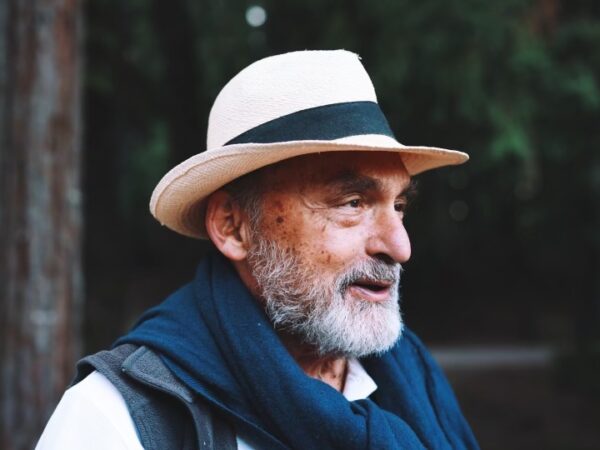by Edward Espe Brown
In a Zen story from perhaps the 7th Century in China,
the disciple asks his teacher, “How do I attain liberation?”
His teacher replies, “Who is binding you?”
The student is perhaps feeling trapped by the rules and forms,
the demands and expectations of daily life in the world:
family, friends, relationships, community, the world. One
thing after another, right? And not all of these rules and forms
are coming from outside. Some of them, the need to eat and sleep,
the longing for love, approval, belonging, safety, well-being,
arise from within. For a while in the last century, it was
called the rat race: How do I get out of the rat race? How
do I free myself from this abiding sense of servitude? How do I
attain liberation? (Back then there was the sense of servitude
to money, to work; today we can feel bossed around by the “deep state.”)
Chances are that the disciple had not been examining the
Master’s query of, “Who?” in his pursuit of an answer.
It takes some investigation, some digging around to discover
that we ourselves have habits of mind that limit us, that carry
the sense of our being imprisoned.
The monk approaches the Master believing that he simply
needs some better instruction about how to be free, “How
do I attain Liberation? Please tell me. I’ll do whatever you say.”
Yet, if the teacher answers directly, how could he possibly
give any useful advice? Any instruction would encourage the
disciple to further submit to doing what he was told, and how
liberated could the student become while he is doing what he
was told?
Oops! Most of us have spent a lifetime or healthy portions
of it doing what we were told. Parents, teachers, siblings, friends,
the world seemed to have a lot of instructions, admonitions, demands —
and at least some of those came along with an, “Or else!” Or else we’ll
be in trouble; or else we will experience pain; or else we will be
shamed or shunned. As children, we made a lot of unconscious decisions
about how to not get yelled at, how to avoid physical discomfort, how to
not be exiled, about what was possible and what was not to be. Now these
early decisions are masquerading as sensible adult choices. In the face of
all the shoulds and shouldn’ts, all the have-to-dos, musts, and can’ts, how
can we attain liberation?
Oh my, we’re pretty much in the thick of it, aren’t we?
The simple fact of the matter is that we are each free; yet we are
still looking for instructions to follow because we think that is the way things
are done according to the instructions, whether explicit or not.
That we are already free means that we make our own choices to get
into our own trouble, to experience our own failure or pain, to feel the
old weight of being shamed or shunned, and we are free to discover
new ways to embody our lives, stand our ground, and speak our truth.
Who’s binding us?
In the vernacular of Joseph Campbell, the great mythologist, we were
instructed to “follow our bliss.”
When people said, “Mr. Campbell, I’ve been following my bliss,
but I lost my job, my partner, my house,” he’d quip, “I didn’t say
it would be easy!”
Whether we feel obliged to follow the early unconscious childhood
decisions that became a body of rules, or we attain the liberation of
making the adult choices of today, there are no guarantees as to the results.
The “wave of the ten thousand things” continues to wash over us.
What’s to be done? The Zen Master’s advice was, “Don’t try to
control them.”
And what do our rules demand? What do our choices call forth?
A bow with my blessings!

 Get access to the monthly Rehumanization Magazine featuring contributors from the front lines of this effort—those living on Death Row, residents of the largest women’s prison in the world, renowned ecologists, the food insecure, and veteran correctional officers alike.
Get access to the monthly Rehumanization Magazine featuring contributors from the front lines of this effort—those living on Death Row, residents of the largest women’s prison in the world, renowned ecologists, the food insecure, and veteran correctional officers alike.